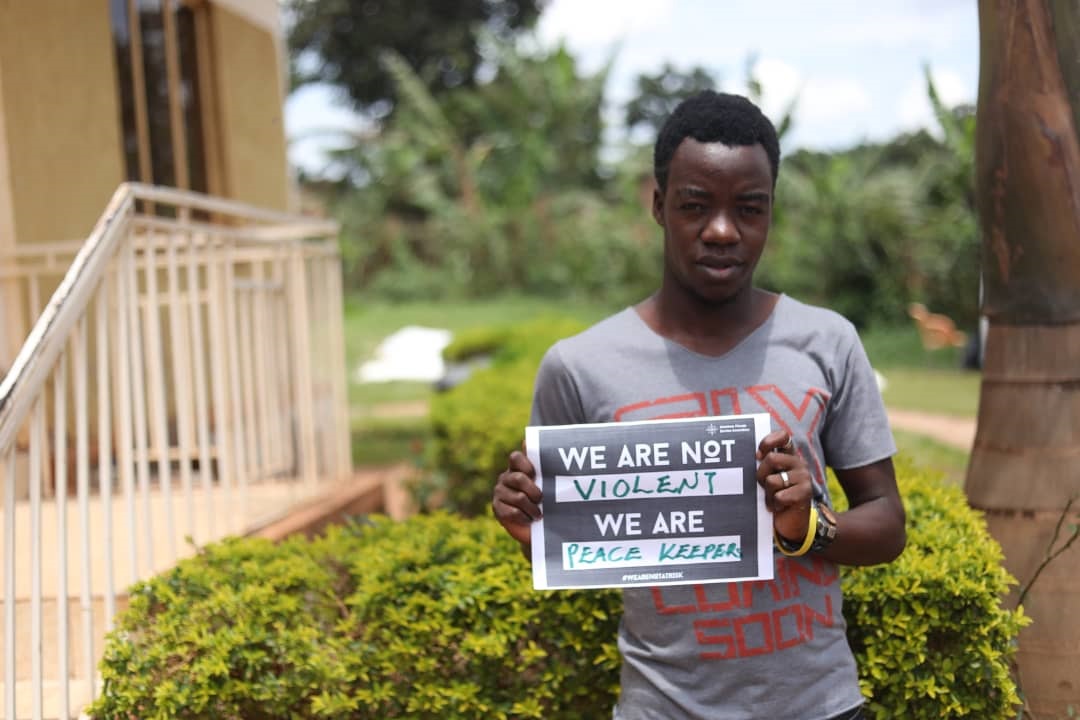
"We Are Not at Risk" challenges people to rethink the words they use to describe young people. Iowa Citizens for Community Improvement / AFSC
A look at the colonialist and racist roots of the words we use to describe young people – and why that needs to change
At risk. Thugs. Illegals. There are many harmful words that people in power often use to describe communities – especially poor youth of color – around the world.
Today, young leaders around the world are leading a campaign to build awareness and change those linguistic behaviors.
The “We Are Not at Risk” campaign calls attention to, and changes, the harmful rhetoric around youth and lift up the voices of young leaders. We Are Not at Risk challenges our communities – especially the media and nonprofits – to “watch your words” and stop using coded racist and colonialist language to describe and talk about youth.
To begin to change the language we use to describe people, it’s important to understand where those words come from.
Here’s a little history: Many European leaders, at the onset of colonialism, had already begun spreading harmful rhetoric of supremacy, perfectionism, and dominance through documents like the Papal Bull, which was a decree explaining the policy of the Catholic Church that they had the right to treat non-Christians as uncivilized and subhuman individuals who had no rights to any land or nation. It was further stated that is was the church’s right to "capture, vanquish, and subdue the Saracens, pagans, and other enemies of Christ," to "put them into perpetual slavery," and "to take all their possessions and property."
Messages like these began to surface and spread and had a large impact on individual, cultural, and institutional levels. As European leaders moved throughout the world performing violent, horrific acts for the purposes of gaining power, privilege, and control, their actions resulted in a cognitive dissonance – imbalance – among them. To address that dissonance, a lie was created. They needed to construct a narrative to justify the deliberate dehumanizing, violent acts that they performed on communities globally.
The result: A specious classification of human beings was created that assigned worth and status. It allowed these European leaders to maintain the privilege, power, and control they had acquired through the subjection of other human beings. It’s what we now call racism.
Linguistics has always been at the forefront of spreading and maintaining this lie. Linguistic racism is not just words that hurt feelings; it is a technique that those in power use to enforce the racial hierarchy and to maintain access and control over resources and institutions. It scripts and describes people who have been colonized as the violent, dumb, and ugly “other” while contrasting those who have subjugated and colonized other human beings as innocent, perfect, and imperial saviors. It globally shapes and informs identities by recreating colonial racist ideologies and mythologies.
Today, words are still being used to spread this lie for the purposes of maintaining power and control. This is seen in how we talk about young people, especially those who are poor and of color or those who fall outside of the dominant culture.
Words like “at risk,” “thugs,” and “illegal” are often synonymous with poor youth of color globally. This type of rhetoric shifts the responsibility to young people instead of to the oppressive racist systems that continue to profit off them, their families, and communities.
And it’s important we take action to stop it.
Enough is enough. Today, young leaders are standing up to say “We are not at risk. We are agents of change.”